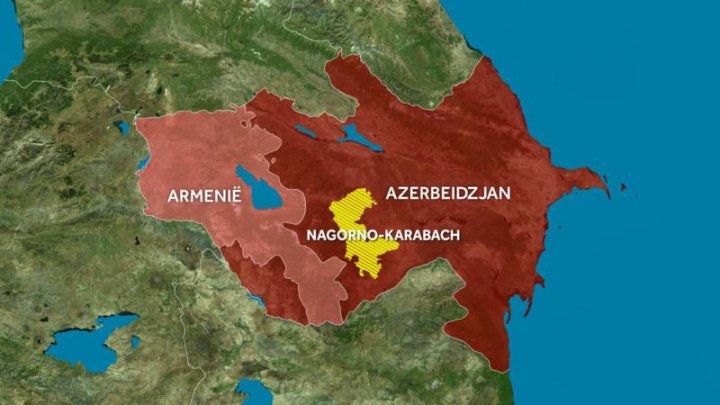Youth of Nagorno-Karabakh aspire to break out of region's isolation
 foto: publika.md
foto: publika.md
In the town of Shusha in the mountains of the disputed Nagorno-Karabakh region the ruins of buildings destroyed in a six-year separatist war are a stark reminder of a bloody past. The war ended in 1994 with a cease-fire yet a lasting peace deal was never signed.
Nagorno-Karabakh has been under the control of ethnic Armenian forces backed by Armenia since the end of the war.
Nagorno-Karabakh's 150,000 people don't hold Azerbaijan passports and can travel only to Armenia, unless they apply for Armenian travel documents. The region's self-declared sovereignty is not recognized by any country. With trade, travel and educational opportunities limited, the region's youth are in danger of falling behind.
With gleaming white neon lights and row after row of new Apple computers, privately funded TUMO Center for Creative Technologies is an after-school training center which epitomises the aspirations of the region to emerge from the isolation that has cloaked it for more than two decades.
The goal: to level up an entire generation of Armenians.
The nonprofit TUMO was founded by an American tech executive of Armenian descent. Such contributions from the Armenian diaspora are vital.
"From Robotics to motion graphics, 3D modelling, to animation, drawing, digital music. We deeply believe they will need to be multi-skilled, and techy and arty a little bit as well, so that they can compete on the market place tomorrow," explains TUMO manager Korioun Khatchadourian, who moved from France several years ago to run the center.
With most of the world off-limits to youth here, centers like these feed their hopes that they do have a place and a future in the global community.
"In traditional school, there are marks and it is not really good because if you are getting bad marks it's disappointing you and you are not going to learn with love, and if you find it not useful for you, you can't just don't learn it, you must learn it. But here you learn what you want," he said.
Today's political leaders who carried the weight of the independence movement 20 years ago say they look with hope to their youth.
"These days, we have a talented youth, who we fully trust. I believe that this generation is even more talented than we were, and it is our responsibility to pass on to them all our experience of the past 30 years so that they continue what we started. I am sure they will reach even better results than our generation," said the separatists' foreign minister, Masis Mayilian.
Nagorno-Karabakh leaders say they have learned to 'coexist with conflict', but working to build institutions while preparing for a future they hope will see international recognition of the region they call Artsakh can be a costly strategy.
They have a national football team, but unrecognized by FIFA and UEFA, they find few opportunities to play abroad.
The airport of the capital city Stepanakert, built at a cost of millions of dollars stands empty. Neatly stacked luggage trolleys await in the terminal, signs in several languages point to passport control, cafes, check-in desks and so on. The one thing missing is civilian passenger planes as Azerbaijan has warned it could not guarantee the safety of flights to Nagorno-Karabakh.
State Minister, Arayik Harutyunyan, claimed Azerbaijan attempts to isolate the territory and he described this as being akin to a violation of the people's human rights.
"Artsakh citizens are deprived of opportunities to visit other countries. From this prospect, the countries that we are trying to establish conversations with, ignore our rights of living on this planet and create barriers for us," he said.
The recent change in government in Armenia with Nikol Pashinian becoming Prime Minister on a wave of mass protests that focused on official corruption, has raised local hopes that a breakthrough could come, or at least bring more investment from "diaspora Armenians" who are a critical source for both Nagorno-Karabakh and Armenia. Harutyunyan says allegations of widespread corruption in Armenia discouraged many possible investors and donors in the past.
"The negative perceptions (of Armenia) by the diaspora, prevailing over the past many years, will surely change and its participation in our lives will only keep growing."
If the conflict is the canvass on which Karabakh-Armenians are building their future, the picture they hope to create is one of peace and prosperity.